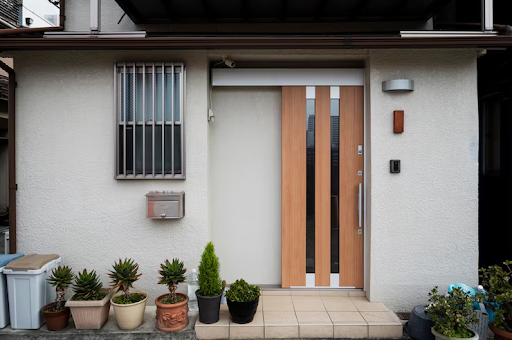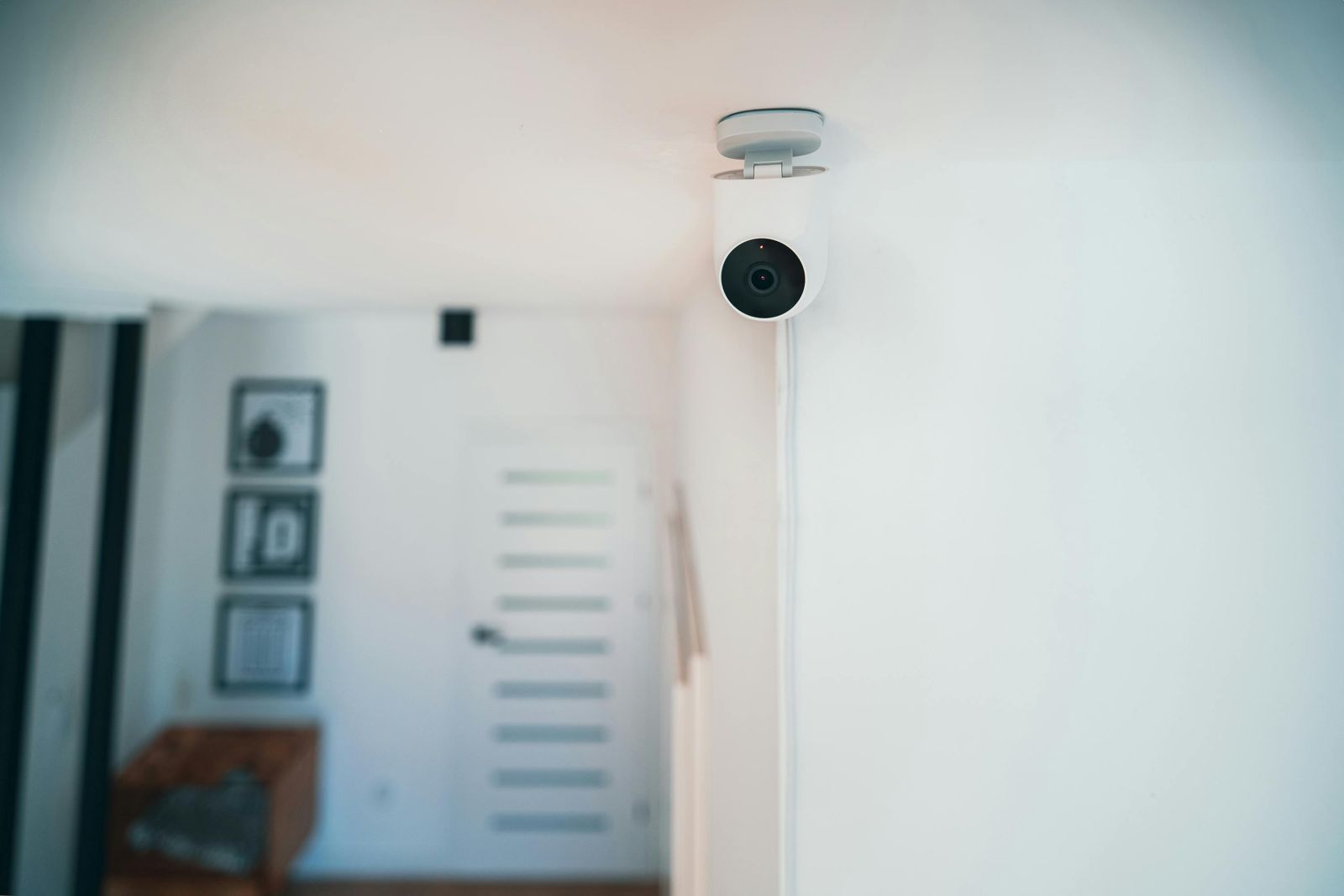When it comes to home or business surveillance, one of the most important decisions you’ll make is whether to go with battery-powered or hardwired security cameras. Both offer distinct advantages and are suited for different lifestyles and environments. Understanding the core differences can help you choose a system that fits your needs and daily routine, without hassle or regret.

Why Power Source Matters
A camera’s power source isn’t just about how it turns on. It affects:
- How often does it need attention
- The features it supports
- Ease of installation
- Reliability under different conditions
Some people need complete freedom to place a camera, while others prioritise uninterrupted, around-the-clock recording. There’s no one-size-fits-all answer—just the right setup for your space and habits.
Understanding Battery-Powered Security Cameras
How They Work
Battery-powered security cameras run on rechargeable batteries, typically lithium-ion. They are often charged using a USB cable and may be supported by solar panels for low-maintenance operation. Since they don’t rely on direct wiring, they can be installed just about anywhere—on a fence post, above a shed, or on the back patio.
Battery Life & Maintenance
Battery life varies widely based on:
- How often the camera records (motion-activated vs. manual)
- Environmental factors like temperature
- Settings such as video resolution or the use of night vision

In general, cameras designed for energy efficiency can last several months per charge, while those offering higher-resolution video or frequent alerts may need recharging more often.
Even with solar support, you may need to occasionally top up the charge, especially during overcast seasons or in high-traffic areas with constant motion triggers.
Key Benefits
- Easy to install without professional help
- No drilling or wiring, ideal for renters
- Portable—move them around your property as needed
- Continues working during power outages
Things to Keep in Mind
- Typically records on motion rather than continuously, which helps preserve battery life
- Works best with a strong Wi-Fi signal, so placement may need to be planned around your network range
- Rechargeable batteries may need occasional replacement after extended use, depending on environmental conditions and usage
- Performance can vary in extreme temperatures, so it's worth checking the operating range for your local climate

Understanding Hardwired Security Cameras
How They Work
Hardwired security cameras are connected to a constant power source—either through a dedicated power adapter or a low-voltage cable system that transmits both power and data. These setups are often linked to a recorder that captures and stores footage locally or in the cloud.
Consistent Performance
Because these cameras don’t rely on battery life, they can offer:
- 24/7 continuous recording
- Higher resolution streaming
- Better support for features like audio recording, night vision, and AI detection

Hardwired CCTV cameras are often favoured for installations where uninterrupted monitoring is critical, such as around entry points, garages, or business premises.
Key Benefits
- Stable and continuous operation, ideal for around-the-clock coverage
- Higher video quality due to constant power and bandwidth
- Reliable performance, especially in challenging weather
- Less maintenance—no batteries to recharge or replace
Things to Keep in Mind
- May require professional setup, especially if cables need to be run through walls or ceilings—this ensures a clean and reliable installation.
- Placement is more fixed since the cameras are connected by wires. However, this often means more stable positioning and stronger connectivity.
- Designed for long-term use, so they’re not intended to be moved frequently. Once installed, they offer consistent coverage without the need to adjust them.
- Relies on continuous power, so pairing the system with a backup power source is a smart way to maintain operation during outages.

Which One Fits Your Lifestyle?
Choosing between battery-powered and hardwired cameras comes down to your living situation, technical comfort level, and what you expect from your security system. Here’s how to think about it:
You Might Prefer Battery-Powered If:
- You rent your home or apartment and want to avoid permanent installations
- You want a DIY-friendly setup that can be installed in minutes
- You need flexibility to move cameras around your property as needed
- You’re okay with motion-activated recording rather than full-time surveillance
- There’s no power source nearby, such as for a camera on a gate, shed, or tree
You Might Prefer Hardwired If:
- You own your home and want a permanent, reliable solution
- You need 24/7 surveillance, especially in high-risk areas
- You’re monitoring a larger property and want consistent coverage
- You don’t want to worry about charging or replacing batteries
- Your internet connection is inconsistent and you'd prefer a direct-wired connection
Key Considerations Before You Decide
- Recording Needs
- If you want constant footage of a specific area, hardwired is the way to go. Battery-powered cameras usually only record when they detect motion.
- Property Type
- For homes where drilling holes is not an option (like apartments or rentals), battery-powered models offer more flexibility.
- Installation Complexity
- If you're not comfortable with electrical work or climbing ladders, the ease of battery-powered cameras is a huge advantage.
- Internet Reliability
- Battery-powered models often rely solely on Wi-Fi. If your Wi-Fi isn’t strong where you want to place the camera, hardwired models with wired data transfer will offer more stable video streaming.
- Maintenance Preferences
- Battery models require you to recharge or replace the batteries occasionally. If you’d prefer to “set it and forget it,” hardwired systems need far less upkeep.
- Backup Power Needs
- In areas with frequent power cuts, battery-powered models can keep recording during outages. However, wired systems can also be paired with backup power solutions if uninterrupted surveillance is critical.
.jpg)
Final Thoughts
Both battery-powered and hardwired security cameras have their place, and many homes benefit from using a mix of both. For example, you might install hardwired cameras around the perimeter of your home for continuous coverage, while using battery-powered models to monitor areas like sheds, driveways, or temporary construction zones.
The best security system is one that matches your lifestyle, protects what matters most, and runs without constant attention. By understanding the strengths and trade-offs of each power option, you can make a confident choice that balances convenience, reliability, and peace of mind.
Did you enjoy reading this article?
Stay updated on our latest deals and promos by following our social media accounts.
Find this article helpful? Don't forget to click on the share buttons below.






.jpg)